Palestinian women’s team scripts history with first game in Europe on Nakba Day
By Humaira Ahad
In a jampacked football stadium, thousands of miles away from Palestine, the deafening roar of spectators created an electrifying atmosphere as thousands of fans waved Palestinian flags.
The ear-splitting cries of “Free Palestine” reverberated across the stadium. The venue was the Dalymount Park in Phibsborough on the Northside of Dublin in Ireland.
The loud cheer of the animated Irish crowd for the Palestinian women’s football team, as it played for the first time in Europe, was an expression of the country’s unwavering support to the Palestinian cause.
The Palestinian women’s team played a friendly against Bohemian, a fan-owned Irish football club, at Dalymount in Dublin on Wednesday, defeating the hosts 2-1.
“With this event (the match), we’re telling them we exist,” Mira Natour, a defender for the Palestinian national team, was quoted as saying before the match, displaying a never-say-die spirit.
“We have a reason to tell the people that we are human beings. We have rights the same as you, to play, we have the right to express our feelings, we have the right to be recognized by the world.”
Irish club’s support for Palestine
The people of Ireland have traditionally been staunch supporters of the Palestinian cause, and this support extends to the sports arena as well, including football and volleyball.
Irish football fans are often seen carrying Palestine flags at Bohemian matches.
In 2023, the Irish football club released a Palestine-themed away jersey. As the jersey sold well, “Palestine Sports for Life”, a club based in the occupied West Bank, was handed 10 percent of proceeds from shirt sales.
That money was directed towards a project at the Tulkarem refugee camp in the occupied West Bank.
As the tickets for the Bohemian FC versus Palestine match were completely sold out, the club took to social media to announce other ways to raise funds for Palestine.
“If you still wish to show your support and help raise vital humanitarian funds you can do so in two ways: Buy a non-attendance ticket or buy a live stream of the game.”
The club intends to donate the revenues generated from the friendly to “Palestine Sports for Life”, “Medical Aid for Palestinians” and a Bethlehem gym with Irish involvement called “Aclaí Palestine”.
The Irish football club also hopes to play a return game in Palestine once the regime’s war on the besieged strip ends.
Rousing reception for the Palestinian team
The team arrived in Dublin on Sunday to a rousing reception with hundreds of football fans and pro-Palestine supporters turning up at the airport to receive them with ‘Free Palestine’ chants.
Nicknamed 'Fedaeeyat', or 'freedom fighters' in English, the members of the team could be seen dancing and smiling as they were greeted by supporters at the Dublin airport.
“Walking through the pitch and seeing our flag here, it feels like home," Palestinian-German player Nadine Mohamad, 20, was quoted as saying before the game.
Irish President Michael D Higgins, who hosted the visiting Palestinian team, commended the hosts for their initiative in what was the Palestinian team’s first match in Europe.
The players told Higgins how much they were looking forward to the match and how much they “appreciated the support they have received in Ireland”, the Irish Times cited a spokesman for the president as saying.
Before the match played in front of 4m390 spectators, both teams observed a minute’s silence in honor of those who have been killed in the Israeli genocidal war on the besieged Gaza Strip.
“This was an evening of both celebration and defiance. As the daylight faded, the adjacent brutalist Phibsborough Tower had “Free Gaza” projected onto its wall,” the Morning Star wrote in an article.
Dima Abdeen, the second youngest player in the team, who took to the field with a hijab was all praise for the Irish hospitality and support for the visitors.
“The Irish people have shown us an overwhelming amount of love; people have been stopping us, giving us presents and gifts,” the newspaper quoted her as saying.
Ireland’s longstanding support for Palestine
Despite being a European country, Irish people identify themselves with the Global South's experience of imperialism and colonialism, which explains their iron-clad support for Palestine.
The country shares a traumatic history of British colonialism with Palestine. British officials have themselves drawn parallels between the Irish and the Palestinians.
Ronald Storrs, Al-Quds Governor (1917-1926), once said that if Jews relocated to Palestine, the West Asian country could “form for England a little loyal Jewish Ulster in a sea of potentially hostile Arabism”.
The reference was to British settlers who occupied Northern Ireland in what came to be known as the “plantation of Ulster.”
British Prime Minister Arthur Balfour, who signed the infamous Balfour Declaration in 1917, declaring Britain's support for the illegal Zionist entity in Palestine, opposed home rule for Ireland in 1885.
In 1887, Balfour as a member of a cabinet sub-committee for Ireland, ordered police to open fire on protesters in Mitchelstown, Ireland, killing several people. After that incident, the British politician began to be called "Bloody Balfour" in Ireland.
Both Palestinians and Irish underwent torture at the hands of a brutal British police force called “Black and Tans”. The police got its name from the improvised uniforms they wore.
The security force was responsible for killing Irish people in the early 20th century. After Ireland’s independence, “Black and Tans” were deployed to Palestine where they persecuted the indigenous Palestinian population.
Collective oppression and victims
The collective oppression that the two countries suffered has translated into staunch support for the Palestinian cause in the European country.
In 1980, Ireland became the first European Union (EU) member to call for Palestinian statehood.
In 2018, Frances Black, an Irish politician and chairperson of the Irish Anti-Apartheid Campaign for Palestine, proposed the Occupied Territories Bill, which called for banning and criminalizing trading goods and services from lands occupied by Israel.
In 2021, Ireland became the first EU country to declare that the Israeli regime was involved in the “de-facto annexation” of Palestinian land.
Since October 7, when the Zionist entity launched a war on Gaza, Ireland has emerged as an exceptional European country for its strong support for the Palestinians.
Ireland’s politicians were among the first in Europe to call for the protection of Palestinian civilians and denounce Israel’s onslaught on the besieged strip, which has now claimed nearly 35,500 Palestinians.
Ireland and Spain have been asking the EU to review its trade agreement with Israel, over the regime’s gross human rights violation in the occupied Palestinian territories.
The European country played a significant role in advocating for the UN resolution on Palestine’s membership, which was passed by 143 states voting in favor of Palestine’s membership.
Irish support for the Palestinian cause is not just limited to politics but has assumed the character of a cultural movement.
Ireland’s popular musical bands like the hip-hop trio Kneecap, have been vocally supporting Palestine.
Irish rock band The Shan Vans even sings about Palestine in the Irish language. Shan Vans' song has lyrics that mention Irish hunger strikers in British jails during “the Troubles”, and Palestinians in Israeli prisons.
In March, all of the Irish bands that were scheduled to perform at the SXSW (South by Southwest) festival in Texas, canceled their performances over the event’s sponsorship by the US Army that supports and sells weapons to the apartheid regime.
Some of Ireland's most renowned actors and writers, including Sally Rooney, Anna Burns, and Siobhán McSweeney, have been part of the “Irish Artists for Palestine” group. The organization works to raise funds for Gaza, also supporting Palestinian artists.
In November 2023, the group held a series of independent events focused on active solidarity and fundraising for Palestine.
Ireland’s athletes have also been showing solidarity with Palestinians. In February, the Irish women's basketball team refused to shake hands with their Israeli opponents at a EuroBasket qualifier.
Israel’s destruction of football in Gaza
Palestinian women's football team’s first European tour came amid growing calls worldwide for the suspension and ban of Israel from international sporting events over the genocidal war on Gaza.
Earlier this week, the Palestinian Football Association (PFA) urged football’s governing body FIFA to expel Israel from all international sporting events over its genocidal war against Palestinians in Gaza.
FIFA has said it will seek legal advice before convening in July to decide on a Palestinian proposal to suspend Israel from international matches.
“I ask you to stand on the right side of history… If not now, when?FIFA cannot afford to remain indifferent to these violations or the ongoing genocide in Palestine.”PFA President Jibril Rajoub said while speaking before delegates from 211 member associations.
Before the genocidal war began on October 7, Gaza housed 10 stadiums where fans would gather to cheer for their favorite clubs. Football provided an escape for Palestinians whose lives have been overshadowed by decades of Israeli occupation.
Even before the start of the recent genocidal war, the residents of the coastal strip were reeling under an Israeli blockade for more than 16 years. The stadiums that were once filled with laughter and passion for the popular game have now been reduced to ruins.
“All the football infrastructure in Gaza has been either destroyed or seriously damaged, including the historic stadium of Al Yarmuk,” PFA said in its statement.
According to the PFA, more than 243 athletes have been killed in the Gaza Strip and the occupied West Bank. Among them 161 are footballers, 43 being children.
Democrats press Trump to explain rationale behind new Iran strike amid warnings about dire risks
VIDEO | Press TV's news headlines
VIDEO | Ex-UK envoy to US arrested by British police
Department of Justice withholds, removes Epstein files that reference Trump: Probe
FM says historic opportunity at hand for unprecedented deal; vows Iran will defend sovereignty
Aid groups challenge Israeli ban that could starve Gaza, West Bank
Hamas denounces Israel’s threats to destroy resistance, slams ceasefire violations
Lebanese army orders troops to return fire after Israeli attack near border post


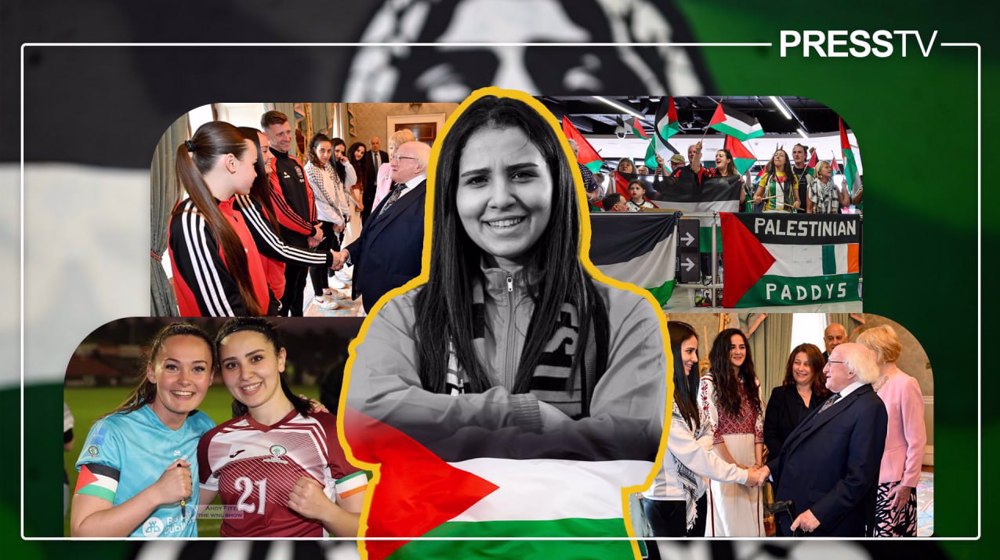
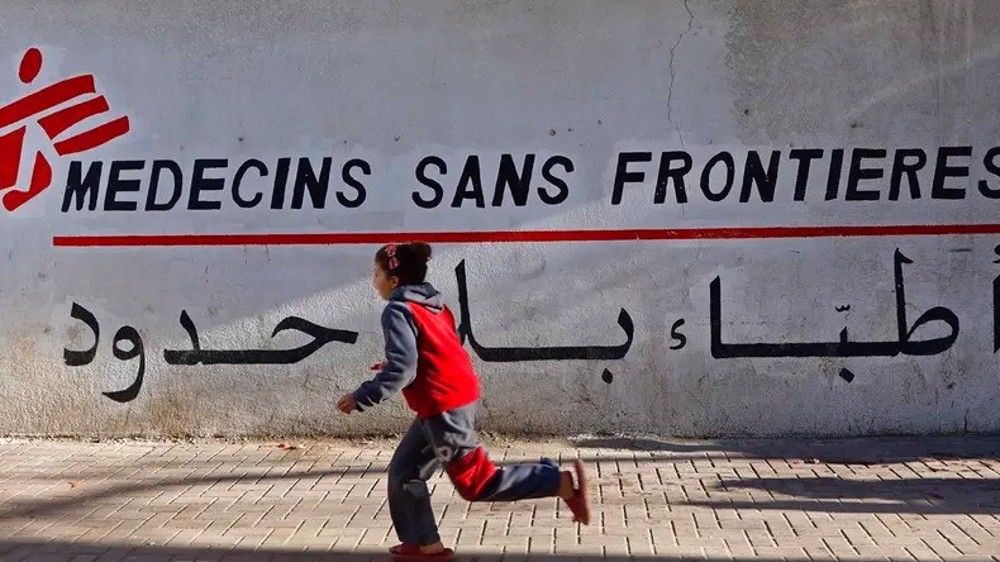
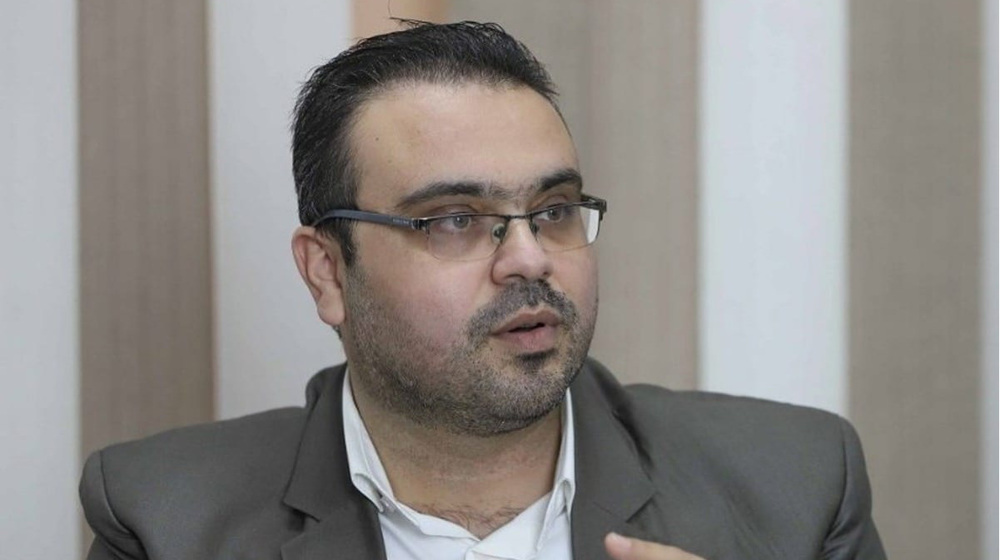
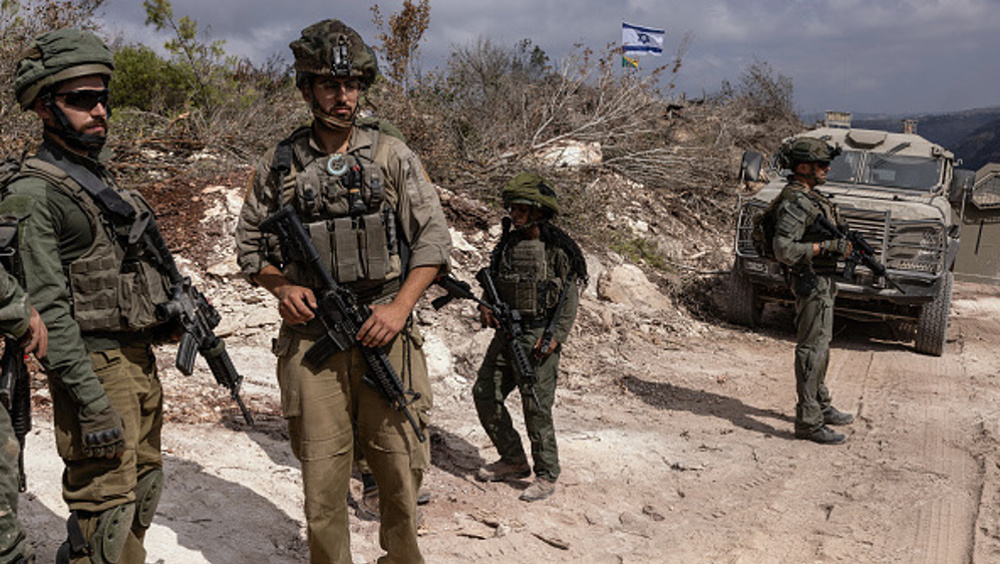



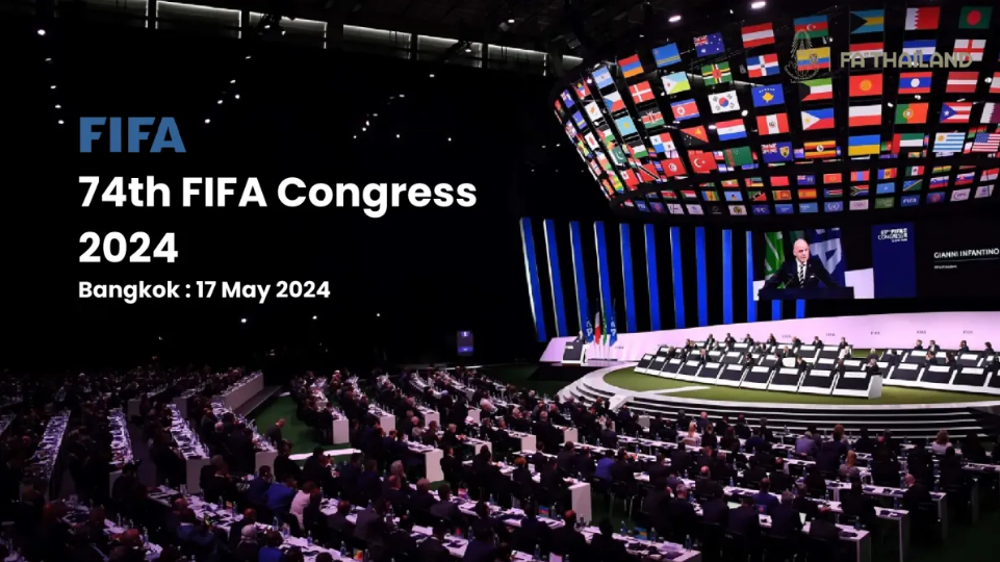
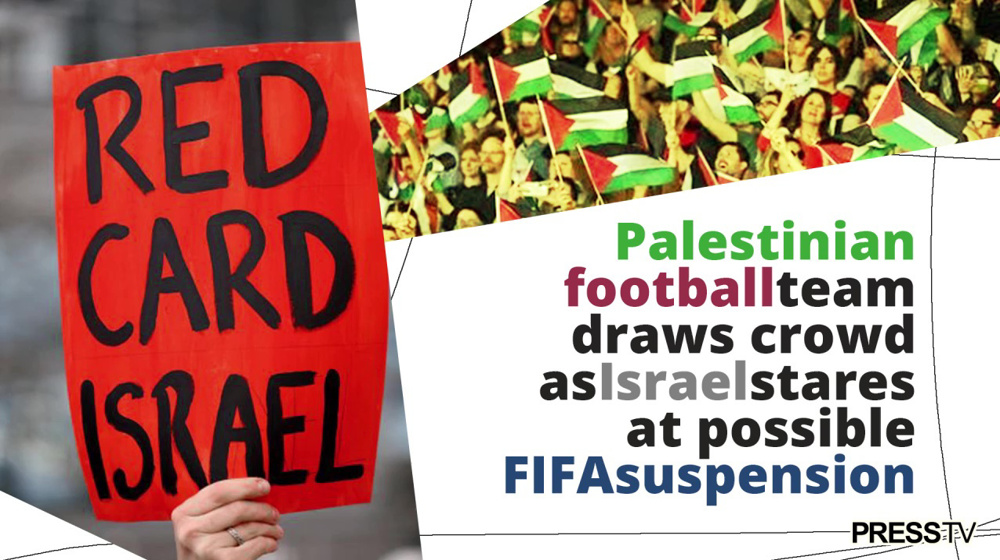
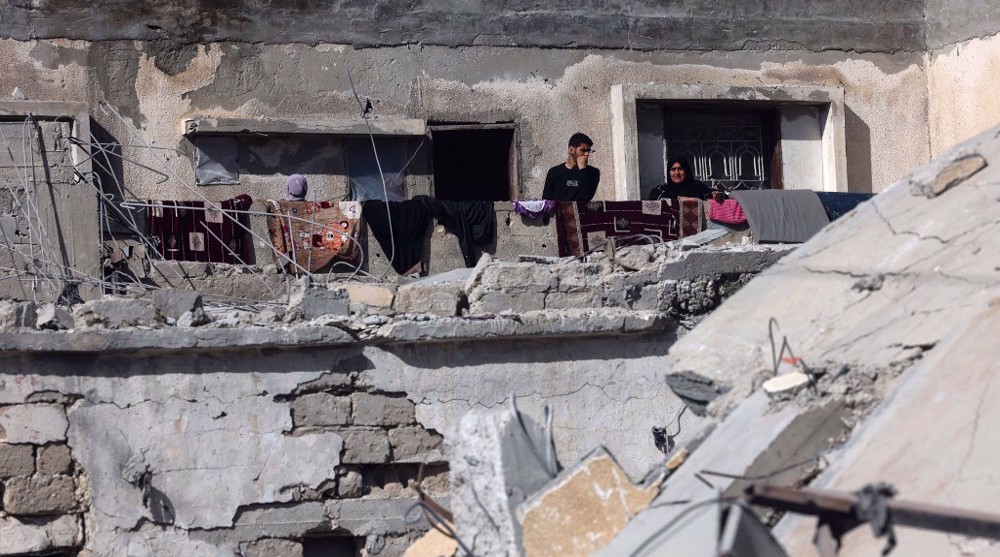
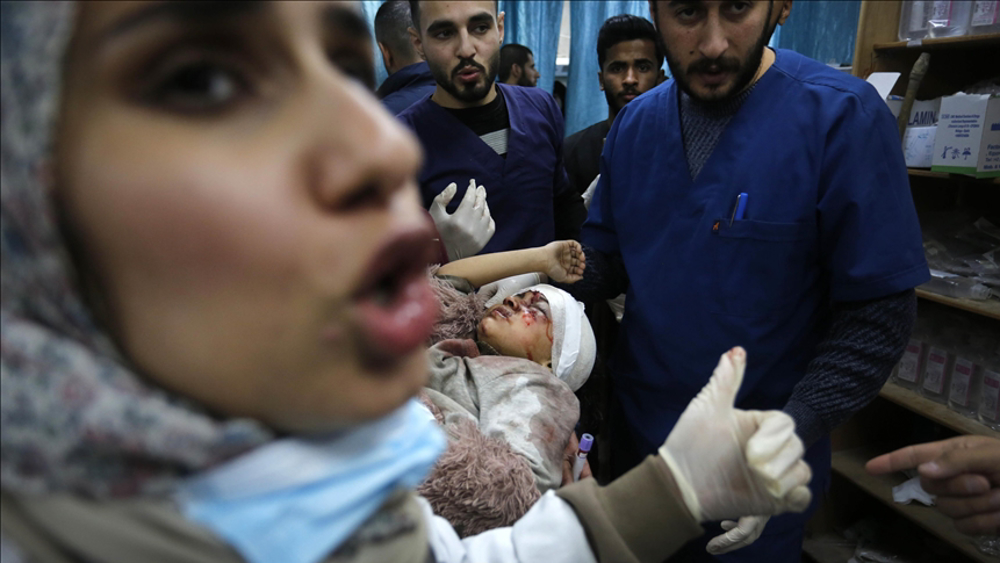
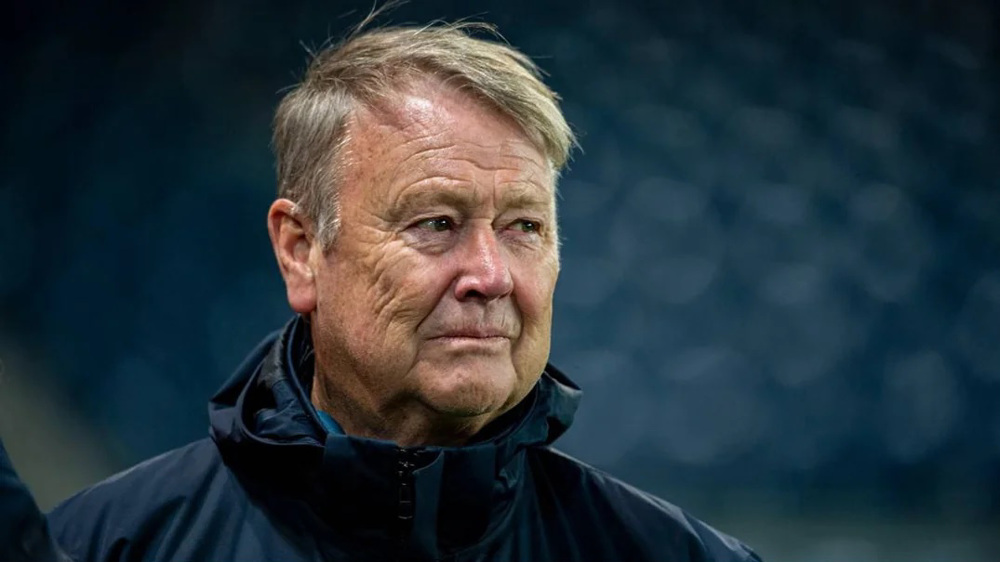

 This makes it easy to access the Press TV website
This makes it easy to access the Press TV website